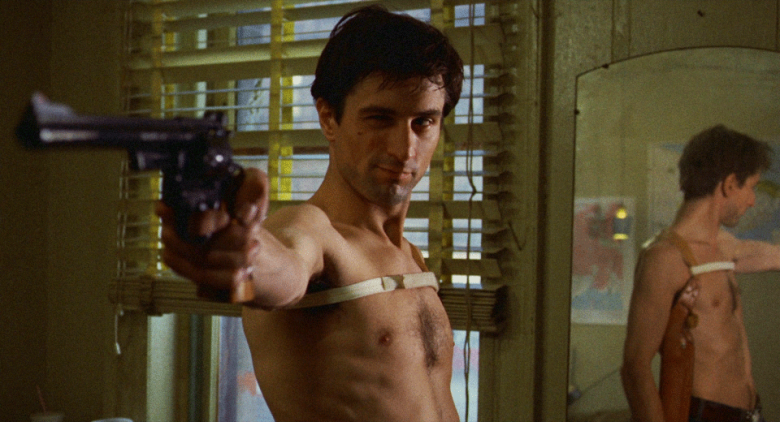Reviews
Martin Scorsese
USA, 1976
Credits
Review by Ellen Lindner and Rumsey Taylor
Posted on 08 February 2011
Source Sony Pictures DVD
Categories Blind Spots
Listen, you fuckers, you screwheads. Here is a man who would not take it anymore.
Introduction by Rumsey Taylor
New York is inarguably one of the most prominent urban settings in all of cinema, and yet its depictions are so often superficial. Those who visit the city after having been familiarized with its iconic horizon, impossibly delicious bargain eateries, or architectural signifiers soon discover the cultural remainder that occupies the space between these things: the overbearing signage of an alley XXX store that distinguishes its patrons in unnatural neon, belligerent commuters who are perpetually in a hurry, or the steam chimneys that obscure your view of the famous horizon surrounding them. The irony is that, once you live here, this remainder becomes more familiar than the things that more popularly characterize America’s largest city.
Martin Scorsese’s Taxi Driver - the director’s fifth film and third set in his home city - is certainly one of the more hostile and realistic depictions of New York that I have seen. It is famously a character study, but its central character is inseparable from his setting: he drives a taxi cab about Manhattan seemingly overnight, bearing witness to the most gruesome, foreboding features of the city that never sleeps. The movie is an abbreviation of this character’s total exposure to “the scum, the cunts, the dogs, the filth, the shit,” but in its duration Travis Bickle’s desire for clean becomes palpable. It becomes possible to sympathize with this very damaged, often wrong-headed character because he is a casualty of the city he lives in.
Notice how the establishing shots in Taxi Driver are regularly claustrophobic, framing our lowly narrator in an unfamiliar New York context, imprisoning him in an urban cell with walls that reach up into imperceivable heights. But these images are not foreboding, even if that’s the effect they have on some viewers; rather, Scorsese’s gaze remains romantic, not dissimilar from Woody Allen’s more obvious romantic regard for the same city (epitomized in his film that is the city’s namesake). To truly love New York is to accept its myriad flaws, and Taxi Driver, if nothing else, remains unremittingly focused on the flaws.
Review by Ellen Lindner
In the spirit of confession on which this series of articles is founded, prior to my viewing for this essay, I had never seen Taxi Driver.
Not even twenty minutes late at night on television, the way I have ‘experienced’ The Exorcist (I got freaked out). Not in a colorized, let-down-thy-hair glimmer of a childhood memory—the only way, until recently, I had ‘seen’ The Big Sleep (or at least the famous bookshop scene). No, for me Taxi Driver was just a big bag of DeNiro impressions, a hazy visual impression of that crazy haircut and Jodie Foster’s midriff. And a worry… that if I saw this film, the freakout I got from a few minutes of Linda Blair would feel quite appealingly nostalgic.
But now I’ve seen Taxi Driver. It’s different than I thought it would be, the way great, interesting films usually are. Sunset Boulevard was a heck of a lot different to what I thought it would be, and that was a good thing. So was An Affair to Remember. But Taxi Driver was an altogether different experience.
Maybe I should simply applaud the fact that Scorsese made such a crazy film, and that Schrader wrote a script that involves someone wiping semen off the back seat of a cab. Back in 1976 this must have had as approximately violent an effect on moviegoers as a golf-club to the kneecap. Maybe I should’ve seen Taxi Driver sooner, and felt the intensity of its soundtrack, full of buzzing flavors like a good cup of coffee. I should’ve seen the neon streets, full of blues and reds popping against the black of the night sky, and I should’ve dipped into the seventies politics which it briefly satirizes as bleak and bland.
But maybe, having grown up in the America torn up by Vietnam and seen so many pointless movies about slightly sexy psychopaths, I wasn’t interested in tracing the river of cinematic death and darkness back to its roots. I happily watched Kubrick, but so much of the spiritual decay and resulting disaster that mark Kubrick’s best films take place in another dimension of some kind, the alternate future reality of A Clockwork Orange’s droogs, or the moral vacuum of Hal’s mainframe. His satires are labelled very clearly. And Tarantino… well, his films have kickass ladies like Mrs. Mia Wallace, not child prostitutes who - I’ll confess, this is what I thought Taxi Driver would be like - have cute, Besson-style relationships with the main, older male, character. Taxi Driver just looked like something that would be violent and sad in the way that real life is often violent and sad, and I was less interested in that.
It tells the story of a man who can’t figure out that a porn film is not appropriate for a first date. It tells the story of a man who learned to be violent in the Marines, specifically in Vietnam, and brought that knowledge back home with him. It tells the story of a city that’s violent, and dirty, and full of people who are pretty awful. It tells the story of a man who follows women he doesn’t know. It tells the story of a man who thinks that killing someone with a handgun - that is, handguns - requires doing a hell of a lot of exercise. It tells the story of a man who says things like “suck on this.” It tells the story of a man who thinks that little girls should be at school, living happy lives at home with their parents. It’s the story of a man who’s willing to kill four people, and possibly himself, to make this happen.
If Taxi Driver had ended on the couch, with a bloody Travis Bickle miming suicide as a baby-faced cop - clearly too young to have have been in ‘the shit’ - trains his service revolver on him, then I would have been glad, quite pleased actually, to have traced the Nile of modern cinema back to its roots. I would have felt like Schrader and Scorsese understood something about what stupid war after stupid war would do to our society, that not everyone would come home and buy a house in the suburbs (the way my father did) and lead peaceful, exemplary lives. They’re brutalized people, and they brutalize the people around them in a more subtle way than Travis Bickle does, but in a way that has consequences that the architects of the war in Vietnam would never have thought possible. Had the filmmakers stopped there, in that ghastly room with that poor little girl crying - not comforted, not liberated, but terrorized - and Bickle dying on the couch…
But it doesn’t stop on the couch—it doesn’t stop with Travis’ moment of satisfaction, having cleaned just a bit of the muck out of New York City’s sewer streets. It continues, and this, perhaps, is where Taxi Driver and I must part company for all time. The film concludes with Travis as a hero! He’s practically decorated for valor. Apparently, the fact that he’s a hero means we’re not supposed to take the possibility of Travis Bickle’s existence very seriously. He just couldn’t happen to us. He’s too crazy to believe! “It’s a satire”, my husband said, when I tried to process this slightly surreal denouement. Was it all a satire, though? Or just the last ten minutes? If I wanted an explicit satire about violence and society, I would watch Serial Mom. But if I wanted to see a film about violence and society, then where does that leave me?
I prefer the interpretation - and no, I haven’t been cheating - that the last five or so minutes of this film is Bickle’s dying vision. The impossible dream of Iris back with her folks—it’s come to pass. Betsy in the back of his cab, eyes welling with admiration—it’s happening! I prefer to think that Bickle’s vision of heroism and true love is illusory, a self-glamorizing variant on the white light. Violence can’t make miracles happen, but it’s why all the school shooters and office mass murderers kill, to be a hero in their own drama. Watching Taxi Driver in 2011, I can’t help feeling that Schrader knew from the beginning where we’d all end up, and sent us a postcard from the past, where it all began.
More Blind Spots
-
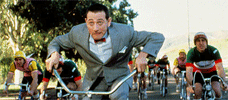
Pee-wee’s Big Adventure
1985 -

The Matrix
1999 -

Amélie
2001 -

The Breakfast Club
1985 -
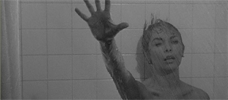
Psycho
1960 -
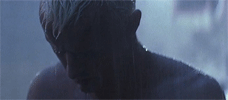
Blade Runner
1982 -
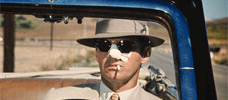
Chinatown
1974 -
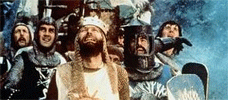
Monty Python and the Holy Grail
1975 -
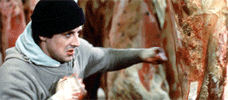
Rocky
1976 -
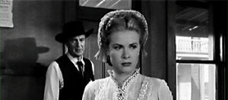
High Noon
1952 -

Ferris Bueller’s Day Off
1986 -
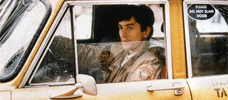
Taxi Driver
1976 -
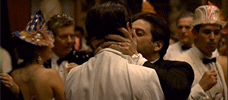
The Godfather
1972 -
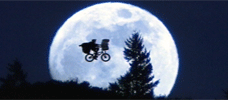
E.T.
1982 -

Pulp Fiction
1994
We don’t do comments anymore, but you may contact us here or find us on Twitter or Facebook.



